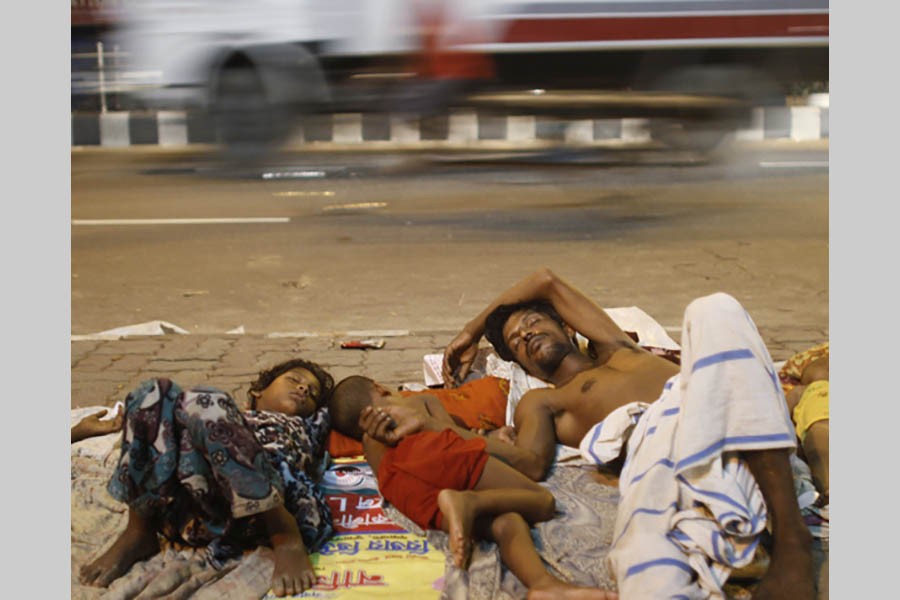Against the backdrop of widening disparities in wealth distribution in both advanced and emerging countries, the performance of Bangladesh is notable. The country ranks 34th in the World Economic Forum's Inclusive Development Index (IDI), 2018. The feat is particularly savouring because it is far ahead of South Asian giant neighbours India and Pakistan -both possessors of nuclear bombs, on this count. Yawning inequality and socio-political polarisation as shown by the Oxfam in its consecutive years' reports lurk as a great danger to social integration and peace. Last year the British non-governmental organisation (NGO) reported that one per cent of the planet's rich possesses 99 per cent global wealth. This year it has found that the poor comprising half of the world population did not have any share of the wealth worth $762 billion created in 2017. But the top one per cent shared 82 per cent of that wealth.
Economists with a vision for the future the world over are unanimous that the world is heading for social instability and even turmoil. The market economy as pursued more or less by countries across the world is increasingly exposing its fallibility. Concentration of wealth in a few hands will stand in the way of bridging gap between and among social segments, leading to social imbalance and unrest.
It is this growing concern that prompted the World Economic Forum (WEF) to come up with a new policy framework and performance metric in order to help countries understand the crucial needs of addressing the areas lacking in attention. It has shifted the focus from just the gross domestic product (GDP) growth to the distribution of benefits among the entire population with discernible positive impact on their living standard. If a country records double digit GDP growth but its people at the bottom rung of society are forced to lead a more miserable life than before, social or economic progress of that country loses all meanings.
The fourth industrial revolution has arrived with immense possibilities but at the same time there is the apprehension that a large number of technologically backward communities in different regions of the world will witness deterioration of their socio-economic status. Lack of education and poor adaptability with new technology will turn them misfit in the bargain.
It is this fear of exclusivity that has acted as an impetus behind the WEF to identify 15 areas of structural economic policy and institutional strength, where action taken by governments can bring about desired changes. A broad-based improvement in living standard of people reflects a country's overall progress, not just the higher rate of GDP growth. To make it happen, multidimensional issues need to influence one another. Issues like higher income, better employment opportunity, economic security and higher and integrated quality of life are a precondition for ushering in social transformation for the better. The process is then expedited by corporate governance, incentive for talent and skill development, competition and provision for basic services.
In such a context, Bangladesh has made remarkable gains particularly if compared to India and Pakistan. Both countries' resource base and earlier start surely put them in an advantageous position on many counts. But then there is some advantage to start a little late too, particularly when it concerns technology. Had the country not been under the military rule for about two decades, Bangladesh might have made further gains in its socio-economic development. Maybe, the wealth created in the process would have been more evenly distributed among its population.
The spirit of the Liberation War could not be held on to as a result of the coups and counter-coups through which emerged a privileged but spineless class toeing the line of the powerful. Politicians have failed to come out of the hangover yet and this explains why the country has not performed to its potential. The message here is optimistic enough -if the country can master the art of bringing its people together to participate in economic reshaping, there is every chance it will improve its standing in the IDI index. To do so a radical change in the mindset is most essential.
Like participatory democracy, inclusive and equalitarian economic programmes can bring about a decisive change in the life of a people. Better income and employment opportunities are not integral to social security and enlightened living if certain sections of people fail to seize the opportunities. Development of infrastructure also cannot guarantee this. Institutional equity is a sine qua non for this to materialise. But then the living standard has to be tempered with a heightened sense of morality and integrity. This must be complemented by unwavering commitment to cultural roots. Otherwise, there is every chance of the new found wealth being abused for sensual and mundane pleasures.
Unless heart and head respond to each other through a system of advanced and enlightened education as against the commercial type of education, there is always the danger of falling in the trap of arcane development. This country has witnessed some of the vilest tendencies of late. Repression of children and sexual abuse of girls and women head the list. All civilisations capitulating to such degeneration eventually disintegrated. This nation must stay cautioned if it really wants to spur its socio-economic development on an equalitarian basis.


